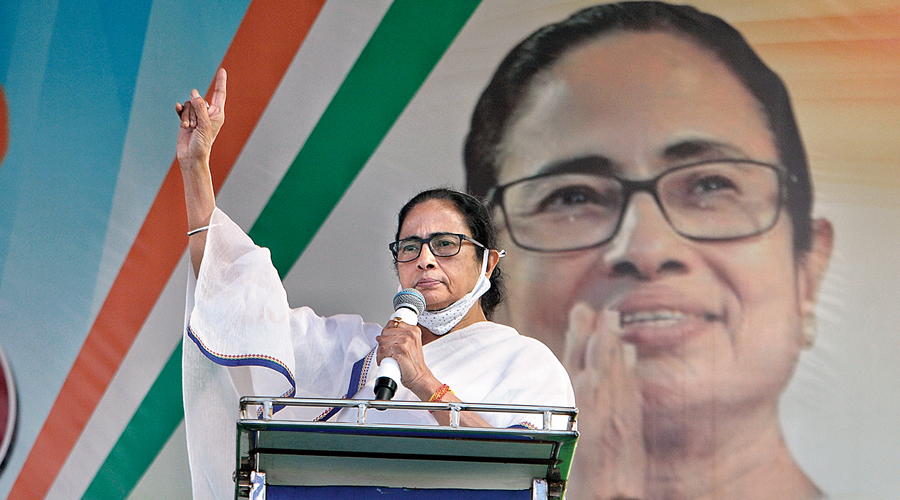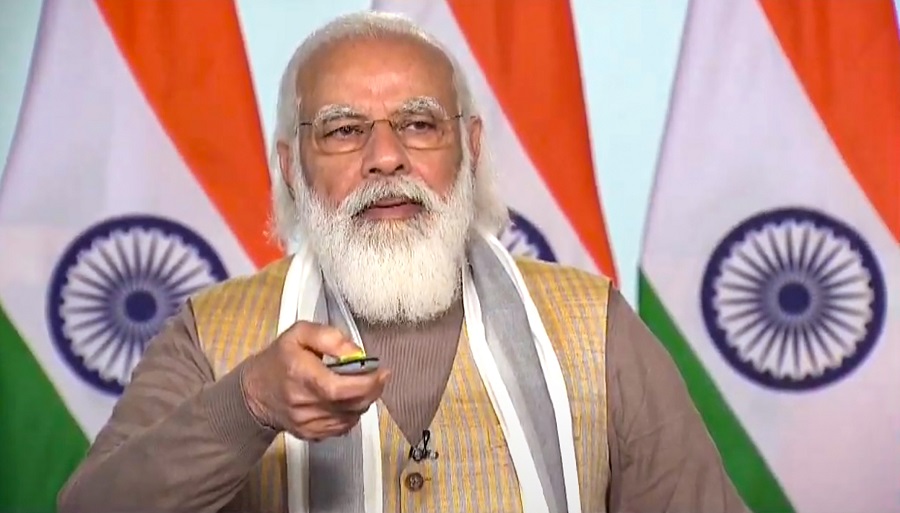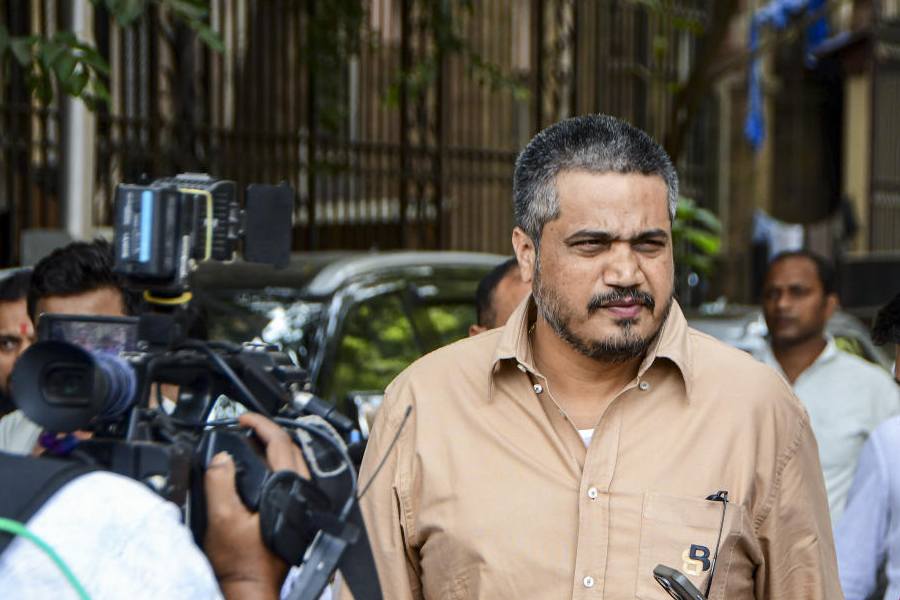The Centre will bear the expenses for the first stage of the Covid vaccination campaign that seeks to immunise around 30 million healthcare and frontline workers nationwide, Prime Minister Narendra Modi announced on Monday.
The announcement and a reported reply by the Prime Minister to a question from chief minister Mamata Banerjee suggest the Centre has not yet decided whether to give the vaccine free in the second stage and subsequent rounds covering the larger population.
Mamata had asked Modi what the Centre’s policy would be on providing the vaccine to the remaining 127 crore people in the country.
“She requested him to roll out a detailed road map regarding vaccination of the people at large…. She also wanted the Centre to make it clear whether the states need to procure vaccines for the rest of the population (beyond the priority categories),” said an official.

Mamata Banerjee File picture
Modi told Mamata the issue would be discussed with the states on completion of the first two phases of the vaccination campaign, sources said.
“The chief minister made it clear that the state was ready to procure vaccines for the larger population and, in that case, the Centre should provide the necessary guidance about the procurement,” an official said.
CNBC-TV18 channel reported on Monday that the government had placed an order for 11 million doses with the Serum Institute of India at Rs 200 a dose. A Serum Institute source told The Telegraph the quoted price was correct, but declined comment on the doses ordered.
At Rs 200 per dose for Covishield, the first stage of the campaign to vaccinate 30 million healthcare and frontline workers would cost Rs 1,200 crore. The total cost would change if the Centre also plans to use the home-grown Covaxin and if the price of that vaccine is different.
Modi, who chaired an online conference with chief ministers on the vaccination campaign, scheduled to start on January 16, iterated that everyone above 50 years, and those below 50 with chronic health disorders, would be vaccinated during the second stage.
All healthcare workers from government and private institutions and frontline workers such as police and paramilitary personnel, municipal workers, home guards, disaster management volunteers and revenue officials would be covered in the first stage.
State governments will not have to bear any cost towards vaccinating these 30 million people, Modi told the chief ministers, adding that the Centre would bear this cost. India aims to achieve vaccination for 300 million people in the next few months, he said.
Health officials had earlier indicated that the campaign could take six to eight months.
The government is expected to rely on two vaccines approved for restricted emergency use by India's regulatory authority - the AstraZeneca-Oxford vaccine, made in India by the Serum Institute, and Covaxin from Bharat Biotech.
The Union health ministry has not yet said how many doses of which vaccine would be used where but, a health official guiding the vaccination strategy said, one option would be to distribute the two vaccines across different geographical areas.
Both vaccines involve two doses and the recipients must receive the same vaccine as the second dose.
Health experts say the pace of immunisation would depend on the vaccine supply as well as the number of vaccines that can be administered per day. The health ministry had earlier said it had trained around 96 million vaccinators for the campaign.
Modi, during the conference, said all states and Union Territories would need to put in place mechanisms to keep rumours related to vaccination in check. The health ministry had asserted that those who received the vaccines would need to continue to follow Covid-appropriate behaviour — wearing masks, avoiding crowds and following hand-washing hygiene.









